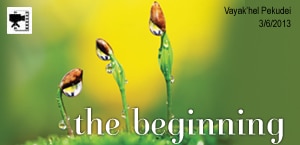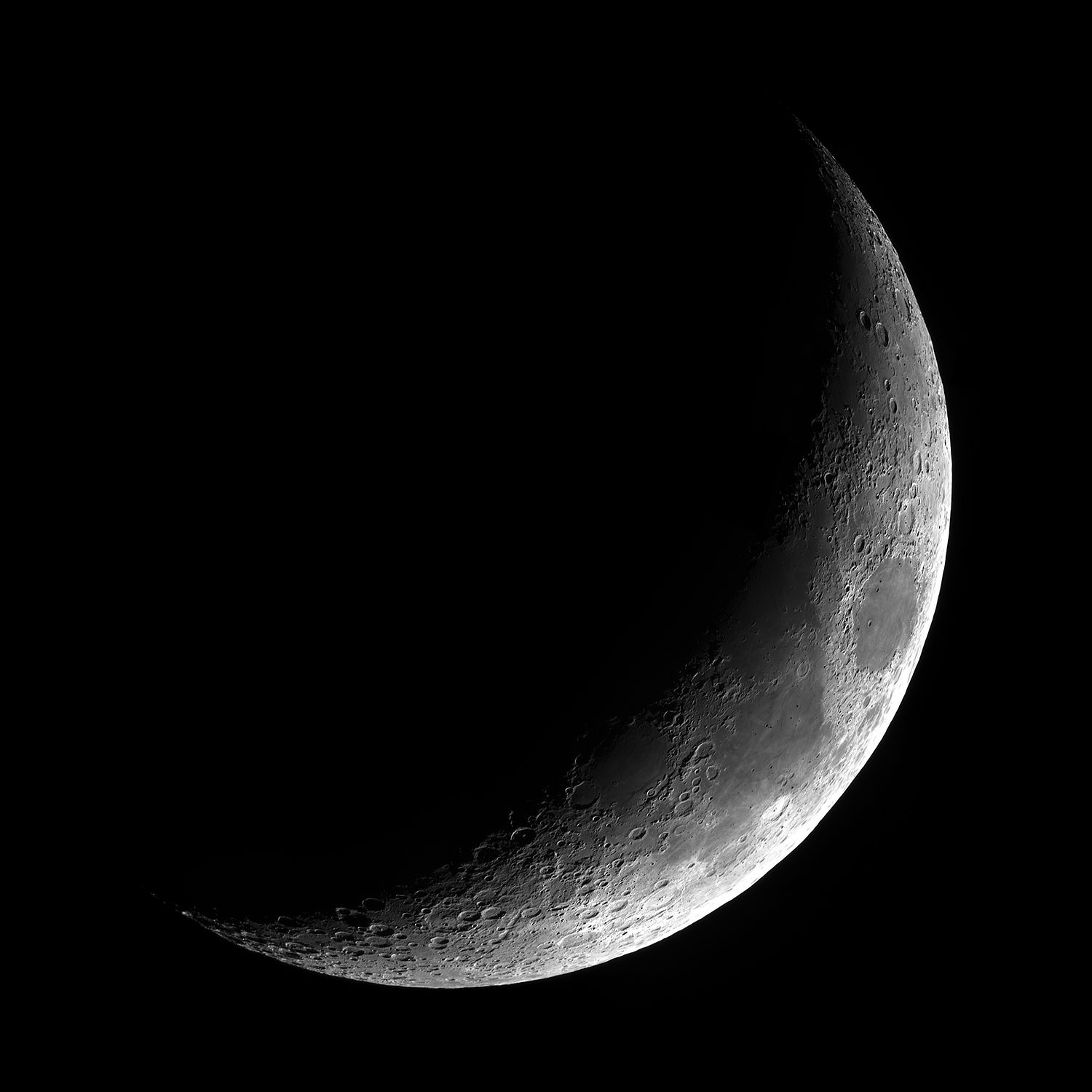Evolution Vs. Intelligent Design
The debate rages on.
Is this elegant universe a product of intelligent design or of random coincidences?
The prevailing secular theory for the past century and a half is based on Darwin’s ideas on evolution. Basically his theory consists of two central precepts. The first is universal common descent, that every living creature can trace an unbroken lineage back to the same primitive life forms, which arose billions of years ago from nonliving matter. The second is natural selection, which holds that the entire complexity and ingenuity of life has evolved by the accumulation of small random mutations. Changes that help the organism survive in its environment are more likely to be passed on. Repeated over many generations, the process produces life as we know it.
Yet, strong voices continue to resist evolutionary theory and maintain that the infinite complex synchronicity of the universe reflects the deliberate design of a conscious, rational intelligence, something that has recently been coined “intelligent design.”
A Seattle think tank called the Discovery Institute represents a scientific dissent from Darwinism. About 350 scientists have signed their operative sentence, which reads “We are skeptical of claims for the ability of random mutation and natural selection to account for the complexity of life.”
Polls consistently show that nearly half of all Americans believe in the Biblical account of creation, which states that humans, in their present form, were created in the Divine Image, distinct from animals. Even when it comes to scientists, surveys show that about 40 percent of them say not just that they believe in G-d, but in a G-d who communicates with people and to whom one may pray “in expectation of receiving an answer.”
The debate has recently taken on new dimensions as the battle is being fought in school boards and courts across the country whether evolution should be taught side by side with “creationism;” should evolution be qualified as a theory with flaws; should it be taught at all.
And thus, the war spills over into the seemingly never-ending conflict between science and religion, and between church and state.
Both sides are digging in, with no end in sight.
But what really lies behind this clash?
When we were younger we may have thought that debates like these were primarily ideological. Yet, when you see the emotions surging from both sides of the aisle, it becomes obvious that there is more at stake than mere intellectual free inquiry. Pure conceptual arguments include tolerance for opinions other than our own. On the contrary, healthy intellectual inquiry demands brutal honesty. It compels us to, dispassionately analyze every possible theory, even ones that completely disagree with our initial premise. Indeed one of the key signs of a good theory, one that we can trust, is the process of thoroughness, that every angle was looked at and opposite extremes were weighed, all in the name of discovering truth.
When we see that a debate does not allow for rigorous discretion and becomes emotional to the point of evoking intolerance and even anger, then we know that the argument is precisely that: deeply personal and emotional.
And once it becomes emotional it also becomes subjective, using intellectual arguments as smokescreens that mask the personal implications of the debate.
The evolution debate is undoubtedly a fascinating study in human nature. In itself it tells us perhaps more about the human condition than the actual theories themselves.
Both sides claim to know the exclusive truth. This may not be surprising coming from the religious perspective, which claims the Biblical account as absolute truth. But since when did science become dogma?!
Even from a skeptical perspective, it seems ludicrous to dismiss the religious view as dogmatic and intolerant, and in the same breath declare that a scientific theory is equally absolute. In this skeptical view the argument would go like this: We don’t expect more from the “religious” person who is after all being irrational. But we must expect more from scientists, who after all are the more rational and less subjective ones.
So what can one say when the so-called scientist becomes as adamant as his religious adversary?
The scientific justification for rejecting the Biblical account that man was created by G-d in the Divine image is because it is an assault on a basic principle of the Enlightenment, that science must explain nature through natural causes. “Intelligent design is predicated on a supernatural creator,” says a lawyer with the American Civil Liberties Union. “That’s not science, it’s religion.”
But who defines what “science” is? Where does science end and religion begin? Just as faith cannot dismiss science, science cannot dismiss G-d. Science can say that according to our man-made parameters of science, science includes only that which is empirically provable or disprovable. The statement “G-d exists” or does “not exist” is not science, because it can’t be proved or disproved (as Karl Popper, the Austrian-British philosopher of science, writes).
If both religion and science are part of the search for truth, then they complement each other and both are necessary. If there is a G-d (I say “if” only to satisfy the skeptic), than how can one argue that “science” should determine the rules, not G-d. If science, for instance, is the search for truth based on our human tools, why is it not part of the spiritual journey of understanding G-d’s mind and the rules that He chose to create and run the universe with?
To be sure, anyone with a clear understanding of faith knows, that faith also demands absolute vigor in intellectual inquiry, perhaps even more than the scientist. After all, it is G-d who created the universe with brilliant design. This compels us to study the laws of nature, because understanding its intricate design helps us understand G-d and G-d’s mind. In religion, scientific inquiry takes on a spiritual personality and is part of a Divine experience.
As this week’s Torah portion makes abundantly clear, that logic itself is rooted in the supralogical. Rational thinking is driven by Sinai. See a previous article: Is Logic Logical?
So the question stands: Why does the argument whether the universe is a product of intelligent design or random circumstances go beyond pure intellectual inquiry and extend into the personal and emotional realm – on both sides of the debate?
Allow me to submit that the root of the conflict is actually about the role of G-d in our lives, which can be traced to the earliest development of the battle between science and religion.
Prior to the scientific revolution, which some have conveniently folded into the more general name “The Enlightenment,” monarchs and church authorities ruled. G-d and religion was imposed on all the people. Science came along with – or some say, came as a result of – the repression caused by religious dogma. Understandably therefore, science was heralded as the new savior; one that would redeem us from religious oppression.
Thus science evolved into the barometer of truth, replacing the old barometer of religion and its so-called authorities. Scientists became the new clergy.
But with one “minor” – or major – caveat. Science is not about absolutes. It does not claim a monopoly on absolute truth. As Karl Popper writes:
“Science is not a system of certain, or well-established, statements; nor is it a system which steadily advances towards a state of finality. Our science is not knowledge: it can never claim to have attained truth, or even a substitute for it….We do not know: we can only guess. And our guesses are guided by the unscientific, the metaphysical (though biologically explicable) faith in laws, in regularities we can uncover/discover…The old scientific ideal of episteme—of absolutely certain, demonstrable knowledge—has proved to be an idol. The demand for scientific objectivity makes it inevitable that every scientific statement must remain tentative for ever.”
Yet many of today’s proponents of scientific truth argue its truth as absolute – as adamantly and dogmatically as religious authorities argue their case. Take Richard Dawkins who actually likens religion to a… disease.
Where does this arrogance come from? Is this too a result of human evolution?
The answer, I suggest, lies at the heart of the issue: Intelligent design means purpose. Purpose implies responsibility – responsibility and accountability to the Designer. And therein lies the problem.
Many years ago, at the opening of one of my classes, a young gentleman said that before we begin he would like to ask me a question. “Do you believe,” he asked, “that the universe is a few thousand years old, and that man was created by G-d in the Divine image and did not evolve from lower species?”
“I ask this question of you,” he continued, “because if you do believe this nonsense, which denies contemporary science, I have no interest in listening to your class. I don’t want to be part of a narrow minded discussion of primitive thinkers.”
“Very welcoming question,” I thought to myself.
I answered him: “Listen. I didn’t ask you where you stand on various issues. And I didn’t make any conditions whether you should be allowed to participate in this class. Why don’t we just study together and you’ll judge for yourself, on the merit of the subject, whether this is for you.
“Regarding the issue of the age of the universe and the nature of man, let me say this. Frankly, I have no interest in convincing you of the Biblical account. Yes, according to the Bible the universe has a certain age (far less than the age science claims), and man was created in the Divine Image. However, this is not one of the 13 principles of faith. G-d could have chosen to create the universe at any point. So I don’t find it necessary to get into a debate on the topic.
“The real question is not the age of the universe, but whether we have a relationship with G-d, whether we are responsible to the Cosmic Designer? If you tell me that you believe we have today a personal, dynamic relationship with G-d, than, as I said, I don’t really care for now whether you think the universe is billions of years old.
“But if you tell me that with the universe being billions of years old, the Creator is so far removed from us that He is no longer relevant, than I will take issue with you.”
In other words, don’t use science as a “cover” to show how G-d is irrelevant in our lives.
The bottom line in the Biblical account of creation is human responsibility. The practical significance of the universe being created with design and purpose and the human being created in the Divine Image, is to tell us that our lives have true meaning and we carry responsibility to the Grand Author to fulfill our calling, the purpose for which we here put here in the first place.
I wonder if the argument would still rage if there were no personal implications in a deliberately designed universe. After all, every book has an author. Which would seem to dictate that the greatest book of all – our elegant universe – has the greatest Author of them all.
Perfectly logical. As long as it does not demand anything of us. If however, this conclusion means that we are accountable to the Author, then science suddenly can become a weapon to protect us from the implications of design.
I would love to meet a scientist who would actually acknowledge that.
It’s one thing to use science as a tool of open-minded inquiry. It’s another when this tool spills over to determine ethics and personal responsibility. Healthy science is like a computer – amoral and neutral. Simply a resource. When science is used as an excuse to alleviate our conscience, as Dawkins wrote that Darwin’s theory “made it possible to be an intellectually fulfilled atheist,” than science has crossed a serious boundary.
Don’t get me wrong. As you know from my writing, I believe that religion today in many circles has assumed all sorts of distortions. As it has wanders away from its authentic roots, religion often becomes mechanical, dogmatic, fear-driven – another smokescreen crutch for human insecurity. Religion too can become a mask and an escape from our true responsibilities. How often do people behave selfishly, how often do they hurt others in the name of so-called faith?
I would love to meet a religious person who would actually acknowledge that.
Faith and reason, religion and science, at their healthiest are both driven by honesty and humility. Not as “fronts” for our frailties.
Being created in the Divine Image means that we need to rise to our higher calling, and not drag it down into our shortcomings. Our Divine nature behooves us to use all our resources, including our minds and curiosity, to probe, explore, analyze and understand the mysteries of the universe, with open mindedness and sober introspection.
There’s something inside of us humans that senses with resonating certainty, that, as much as contemporary science argues otherwise, we are not merely billion year old bacteria, which have randomly evolved into the intelligent creatures that we are. We sense that we have a soul and a higher calling. We feel, some times more than others, that there is purpose to our lives, and we understand that our book has an Author.
Ironically, it may be true faith that will help us all get back to objective inquiry, with no dogma and obstinacy.
Yes, the debate rages on, “dressed up” in either “scientific inquiry” or “irrational faith.”
Perhaps the time has come to be honest, and rephrase the debate so that it accurately reflects the real issue:
Are we or are we not responsible to a Creator?








Am I presumptous in my understanding when I see your comments on this subject very similar to comments made in the argument of Judaism vs. Christianity?
Christians, it seems, contend that salvation is in the blood as it states in Leviticus. Why have we failed, as Jews, to maintain that belief and instead supplant it with good works?
Doesnt our Father state it plainly as truth, yet we, according to our own understanding decide that thats not correct? Weve decided that its no longer about the blood?
How is that not shirking off accountability in much the same manner as choosing evolution over intelligent design?
RABBI I ADORE YOUR QUESTING AND DESIRE TO PRODUCE OR BRING FORTH REFLECTION ON A MYRIAD OF SUBJECTS FOR INDIVIDUALS TO REAP FROM THE BENEFIT OF DOUBT AND PARTICIPATE IN AN ABILITY TO BE PART OF ONENESS WITH SOME LOVING FUSION THEY CAN FALL BACK ON. HOWEVER. THE EARTH IS TURNING AND WE DONT FEEL IT, THE TIDES ARE MOVING AND OUR HEARTS NAVIGATE WITH THEM, AND THE SUN HAS MANY DISTINCT PROCESSES WE PARTNER WITH ALL DAY AND NIGHT. WE ARE WALKING ON THE GROUND NOT ABOVE IT THRU GRAVITY. POINT EVERY PERSON IS A VERY FANCY WATCH PART OF THOUSANDS OF PROCESSES IN MATH AND EVERY FIELD OF PHYSICS OVER MILLIONS OF YEARS CONNECTED TO ROCKS SOIL PLANTS FISH,MINUTE INTRICATE PROCESSES BUT NATURE IS POSITIVE AND NEGATIVE CHARGE FISSION FUSION. EACH PERSON IS INFLUENCED BY SO MUCH. BUT MAN AS HE ADAPTS IS SUBJECTIVE AND NOT ONLY DELOCALIZED FROM HIS OWN ARCHITECTURE BUT A REACTION TO TIME. IF THERE IS A HIGHER FUSION FORCE AS ALMIGHTY INTERPRETED IN DIFFERENT WAYS AROUND THE WORLD, IT IS BUILT INTO THE HEARTBEAT. BUT MAN CREATES FUSION AND PULLS THINGS APART THRU FRICTION AND DESTRUCTION FOR VINDICATED NECESSITY AND SACRIFICE FOR GREED EVIL PROFIT DISEQUILIBRIUM. MAN COOPERATES WITH GENOCIDE IDOLITRY. MAN CREATES DISTASIS FOR PROTECTION AND NAVIGATES THE WEIGHT OF IT.MAN KILLS RUINS LIVES AND CAN BE PLANTED IN DOGMATIC STREAMS OF THOUGHT..WHAT IAM TRYING TO SAY. COLLECTIVELY, WE ARE A MIRROR OF TIME EXCEEDINGLY OVERWHELMING AND WE ARE CONTROLLED LINEAR ADAPTION AND THE BIG BULK OF US IS NOT AND SOMEWHERE IN BETWEEN WE KNOW RESPECT FOR THERE GO I.THERE IS SOMETHING BUT OUR WRITINGS ARE PERSONIFIED AND GIVE THAT SOMETHING MINDSETS PARALLEL TO MAN. THIS SOMETHING FUSES PEOPLE PRODUCES SELFLESS ACTIVITY AND CAN BE FLIPPED IN THE OPPOSITE DIRECTION.BELIEF IN SOME FORCE CAN SEPARATE AND CAUSE FRICTION STATES FROM SMALL TO LARGE. BELIEF CAN BE LIBERATINGLY DOGMATIC FOR MANY AND CHALLENGING TO PERSONAL ADDITION TO THOUGHT FOR OTHERS. RELIGION AS REFUGE OR COMPRESSION. PERSONAL INDIVIDUAL RELATIONS ARENT EASILY FIT INTO THE SPACE OF AN ALMIGHTY. AN ALMIGTY IS DESIRE TO UNDERSTAND OUR PLACE ON EARTH AND OUTSIDE. MUSIC IS A GREAT PEAK. THANKS FOR QUESTIONING FOR AS ONE OF MY HEROES ISIDOR RABI USED TO SAY, ITS GOOD TO QUESTION AND IF YOU GET A GOOD IDEA,YOU TIP YOUR HAT TO GOD. WE NEED TO ACT ON OUR GOOD IDEAS AND NOT FILE THEM.
There are two highly recommended books which besides being a good read are very informative: The Coming Revolution by Zamir Cohen, and We are Not Alone by Adi Cohen. Both deal with the issue of science and religion; while there are similarities there are too, very deep rooted points of departure. Would like your comments! Good Shabbos, and a Blessed Chodesh!
Nothing is impossible in this world we should just work hard and honestly…..